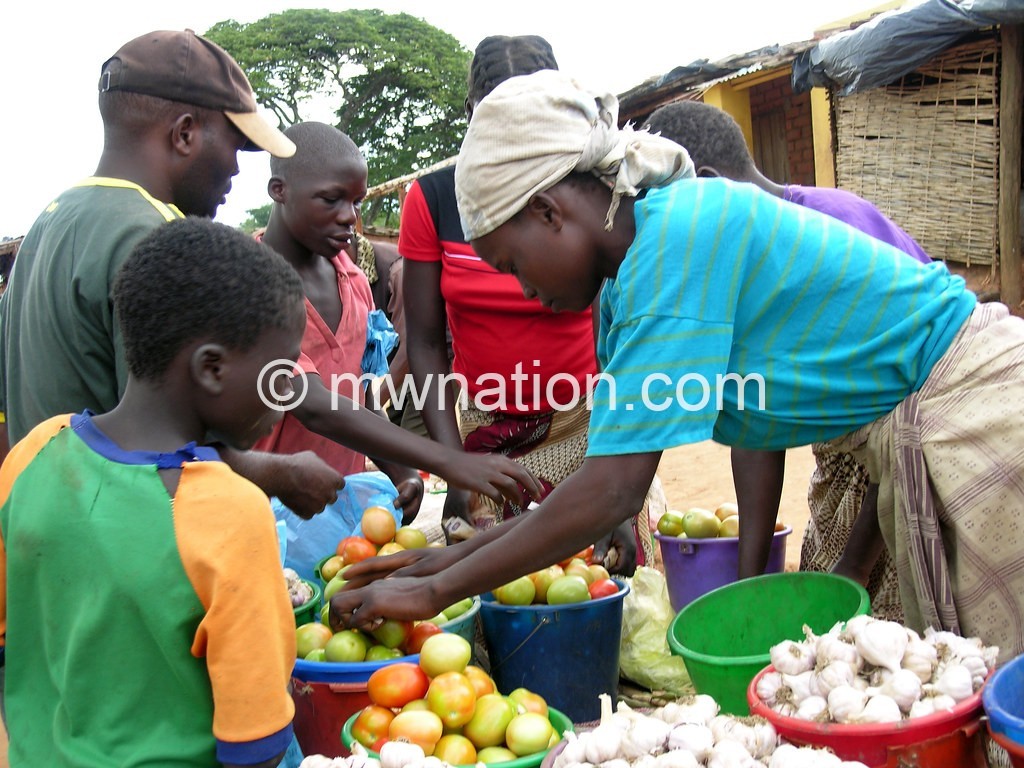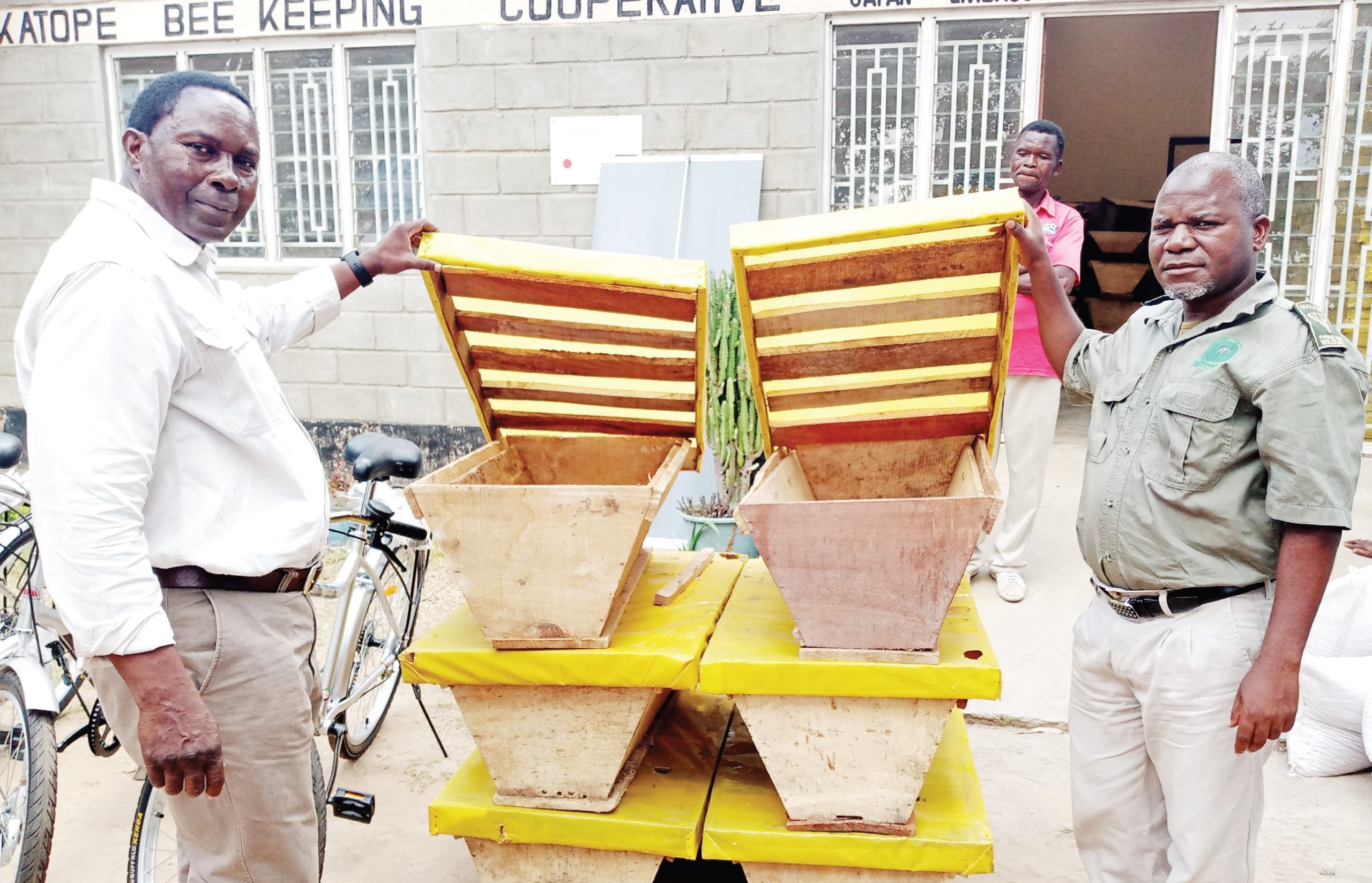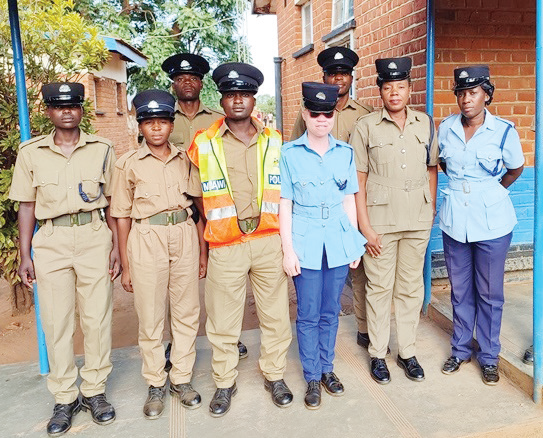Clean cooking for tidy markets
Not all that stinks is garbage. Your waste could be an innovator’s raw material or goldmine. At Tsangano Market in Ntcheu, a $27 000 biogas plant constructed by Malawi University of Science and Technology (Must) promises cleaner cooking energy and tidy business stops. Our Staff Writer JAMES CHAVULA details how:
For travellers and traders in green produce, Tsangano is a stop to remember when cruising on the southern half of the M1.

Every minute, vehicles on the country’s busiest road pull over to grab some potatoes, tomatoes, onions, cabbages, green pepper and other farm produce.
In the scramble for green produce, the perishable goods shunned by customers give rise to heaps of waste Ntcheu District Council struggles to clear.
The ever-growing molehills have become handy for producing biogas for cooking from vegetable leftovers and animal waste from slaughterhouses nearby.
Winning together
Onances Nyirenda, district environmental officer in Ntcheu, hopes the clean cooking project by Must will make Tsangano cleaner.
He states: “They will be churning out biogas from waste, creating jobs and business opportunities for the youth and restaurant owners at the market which generates a lot of leftovers.
“The biogas plant will also clear the heaps of waste taking shape at the trading centre, reducing the money the council spends collecting waste to take it to a dumpsite.”
In his words, Nyirenda visualises biogas production sparking an appetite for gas at Tsangano and surrounding communities where many cook using firewood.

Like many settlements in the country, the community near Ntcheu Town has wiped out trees in the neighbouring mountains.
This mirrors a neglected nationwide cooking crisis as nearly all homesteads—97 in 100—cook using fuelwood.
“We hope that those who cook using gas will not have to travel to Lilongwe or Blantyre to buy their desired fuel, but get it right here in Ntcheu. In the long run, even those who travel long distances to fetch firewood will see the benefits of biogas,” says Nyirenda.
The Department of Energy Affairs estimates that only one in 100 Malawians use gas for cooking, necessitating the scrapping of value-added tax on the commodity, cylinders and stoves to stimulate demand.
The brains at Must want to cut the pressure on trees while making cooking and markets cleaner, starting with goods shunned by customers at Tsangano.
“Tsangano generates large quantities of waste needed for biogas production, but managing such waste remains a huge challenge as there are no waste collection services,” says Hope Chamdimba, a lecturer at the university located in Thyolo.
Making markets clean
The researchers from Must and Green Impact Technologies conceived the project two years ago following a call for proposals from the National Commission for Science and Technology in Malawi and Kenya’s Science Granting Councils Initiative (SGCI).
“The researchers realised that Malawi faces waste management, energy and deforestation challenges which can be solved by one innovative solution—biogas technology,” says Chamdimba. “Biogas is produced from any organic material—food waste, animal waste and human waste—which is available in abundance in any busy market such as Tsangano.”
The trading centre is on the rise with the construction of the Tsangano-Neno road currently underway.
The locals expect the new road to increase business activity at ‘the town which doesn’t sleep’, raising the demand for sustainable waste management.
They expect the biogas production to help solve an age-old piling waste crisis while saving them, especially women and children, from cooking using firewood and charcoal in smoky kitchens.
The clean energy trial at Tsangano will benefit 30 households and restaurants businesses.
The alternative for firewood and charcoal has the potential to reduce cooking-related indoor air pollution which claims a life every eight seconds, according to the World Health Organisation (WHO).
“Sustainability of renewable energy projects has been a great challenge in Malawi, especially those given for free to communities with little or no knowledge of how to maintain and maintain these technologies. To address this gap, we thought it wise to commercialise biogas. The consumers will pay a fee when replenishing the biogas backpacks,” says Chamdimba.
The scientists are already exploring prospects of expanding the intervention beyond Tsangano.
They are enthused that most markets generate waste in the form of vegetable leftovers as well as grass, hay and other greens extracted from goats, pigs and cattle traders kill for sale.
Chamdimba calls the heaps of garbage “renewable energy resource” or neglected powerhouses in the struggle to save forests, lives and the planet from the dark side of an everyday chore—cooking.
“Biogas generation requires a sustainable supply of feedstock [the organic leftovers] in the long run. Apart from vegetable waste, there is a slaughterhouse and a public toilet which are the source of feedstock. Therefore, Tsangano and other markets with diversified sources of feedstock are viable for biogas production,” he says.
The business spots also guarantee a vibrant market for biogas.
The potential consumers include restaurants, chips-making business and surrounding homesteads currently grappling with smoky cooking methods.
The Tsangano Biogas Plant provides cleaner energy to households, restaurants and those who sell chips by the roadside.
Farmers use the solid waste, which remains after digesting and fermenting the leftovers to produce gas for cooking, as manure in barren their crop fields where yield keeps dwindling due to loss of soil fertility and weather shocks.
The biogas plant will provide jobs for about 10 young Malawians when it kicks into full operation.
It follows studies on energy demand and availability of waste to be fed into the plant every day.
“The biogas generated must be consumed so that the business doesn’t make losses,” says Chamdimba, explaining: “Lack of the vital data may lead to over-sizing or under-sizing of the biogas plant, which may negatively affect its operations.”
The other side
Biogas plants turn waste into methane, which emits greenhouse gases fuelling global warming or climate change.
Scientists estimate that the polluting gases from organic waste are 25 times more than what carbon dioxide.
However, biogas production helps tackle waste accumulation in populous settings, including settlements, markets, schools and prisons.
Organic fertiliser, a by-product of biogas generation, also reduced the uptake of chemical fertiliser which degrades the topsoil on which Malawi’s economy hinges.
With time, more farmers will benefit from the plant in terms of organic fertiliser.
However, the traders at Tsangano are already counting the gains.
In their minds, they see the market community struggling to feed the waste digester instead of fanning away foul smell and flies from rotting vegetables dumped in the open.
For many years, they have been concerned about untidiness, wondering why their workspace is usually unhygienic when they pay market fees to the council every day.
They say poor sanitation and hygiene at the trading centre near the border between Malawi and Mozambique personify a widespread sticky issue between the traders and the council countrywide.
The researchers at Must say local councils are crucial in the implementation of any development activity, including turning waste into biogas for clean cooking.
And Chamdimba says: “We planned to install a small scale plant using plastic tanks called prefabricated digesters, but it changed when Ntcheu District Council offered to use public toilets as another source of feedstock.
“This was a turning point. Today, we are talking about a major impact.”n





